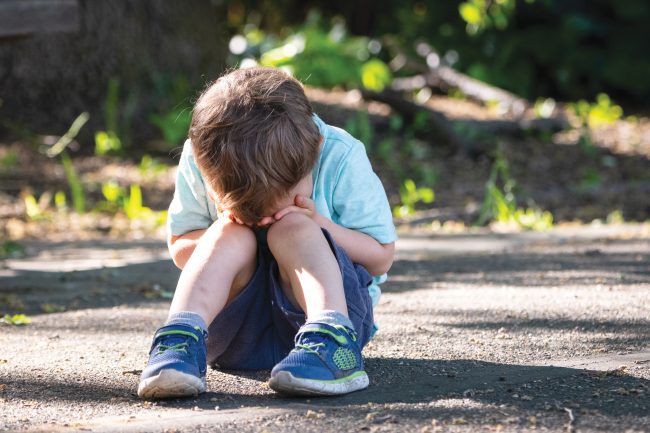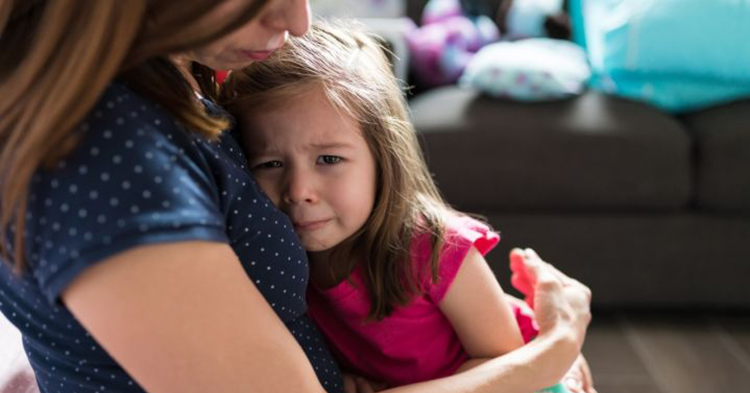Violence in families happens more than people think—and keeping your family safe is always a top priority. Sometimes that means knowing what abuse looks like and where to go for help. If you’re worried about your safety, your child’s safety or someone you care about, trust your gut. Help is out there, and you’re not alone.

Abuse is Never Ok
Nobody—not a partner, relative or friend—has the right to hurt you or your child. Abuse can be physical, like hitting or pushing. It can also be emotional, like constant criticism, threats or controlling behavior. If someone is making you feel unsafe, disrespected or afraid, it’s time to talk to someone.
Signs a Child Might Be Experiencing Abuse
Babies and young children can’t always say when something is wrong, but their behavior can be a warning sign. Abuse can be physical, sexual or emotional—like yelling at, hitting or touching a child inappropriately. Neglect is also a form of abuse. It includes leaving young children alone or not providing basic needs like food, clothing and a safe place to live. Here are signs to watch for:
- Bruises, burns or injuries that can’t be explained
- Fear of certain adults or being left alone
- Trouble sleeping or nightmares
- Acting out or withdrawing
- Delays in development, like speech or walking
- Signs of pain, swelling or bleeding
If you suspect child abuse or have questions about abuse and neglect, call the Arizona Child Abuse Hotline at 1-888-767-2445. Your call is private. If it is an emergency, call 9-1-1.

Signs of Abuse in Adult Relationships
You might not even realize it at first. Abuse can start small—like your partner checking your texts—but it can quickly grow into something more serious. Here’s what to look out for:
- Hitting, pushing or grabbing you
- Calling you names or making you feel worthless
- Controlling your money, phone or time with friends and family
- Threatening to take your kids or report you to immigration
- Making you feel unsafe or constantly walking on eggshells
Shaken Baby Syndrome
It’s never OK to shake, hit or jerk a baby or young child. Even if they won’t stop crying, a moment of frustration can lead to lifelong injuries—or worse. If you’re feeling overwhelmed, take a break. Put your baby in a safe place like their crib and step away for a few minutes.
What to Do in Case of Abuse
If you’re in danger now, call 9-1-1. You can also:
- Call the National Domestic Violence Hotline at 1-800-799-7233 for 24/7 support.
- Pack a small bag with clothes, ID and important papers in case you need to leave quickly.
- Find a safe place for you and your children at a local shelter. They can help with legal support and next steps.
- Ask a doctor, teacher or child care provider for help—they are trained to support families in crisis.
Where to Find Support988 Suicide & Crisis Lifeline — Free, private emotional support for people who feel suicidal or are in emotional distress. Call or text 988or chat at 988lifeline.org/chat/. National Maternal Mental Health Hotline (English and Spanish) — Call 1-800-944-4773 or text “Help” to 800-944-4773 for English or 971-203-7773 para Español National Sexual Assault Hotline — Resources and support for people who have experienced sexual violence. Call 1-800-656-4673 or chat at hotline.rainn.org/online. National Teen Dating Abuse Helpline — Information and support for young people who have questions or concerns about romantic relationships. Call 1-866-331-9474, text LOVEIS to 22522 or chat at Love is Respect. Postpartum Support International HelpLine — Support for mental health challenges during pregnancy and after childbirth; call or text 1-800-944-4773 in English or Spanish. |

